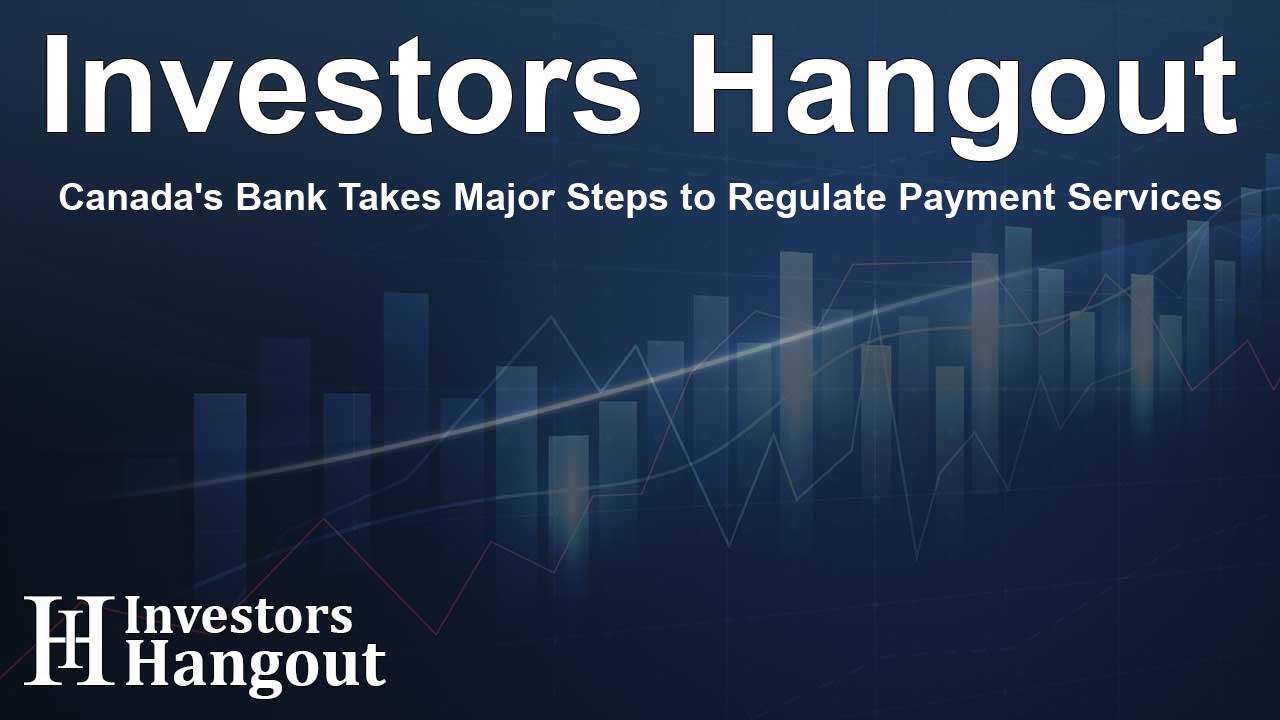Canada's Bank Takes Major Steps to Regulate Payment Services

Canada's Banking Revolution: Regulating Payment Services
The Bank of Canada has recently embarked on an important process by starting to register payment service providers (PSPs). This initiative is aimed at bringing these essential services under regulatory oversight, which will promote safer and more reliable digital transactions across the nation.
Digital Payment Infrastructure Transformation
Critics of Canada’s digital payment infrastructure often express concerns, noting that it pales in comparison to more advanced systems in countries like the UK and Australia. Many believe that even developing nations have more robust infrastructures. The Bank of Canada's move to regulate PSPs is seen as a crucial step toward modernizing this infrastructure.
Building Confidence in Retail Payments
On this significant day, Ron Morrow, the bank's executive director of payments, supervision, and oversight, stated, "Today marks a big step toward giving Canadians added confidence in the safety and security of retail payment service providers." This sentiment reflects the bank’s commitment to fostering a secure digital transaction environment for all Canadians.
What is a Payment Service Provider?
A payment service provider, or PSP, refers to any entity that facilitates electronic money transactions. This includes well-known companies such as PayPal and Square, along with businesses that provide digital wallets, maintain point-of-sale terminals, and enable cross-border money transfers.
Challenges in Canada's Payment Systems
The landscape of Canada’s payment systems is primarily dominated by the big five banks. Many experts have criticized this arrangement for resulting in high transaction fees and delays that can inconvenient consumers and businesses alike. By regulating PSPs, there is hope for increased competition and improved service quality.
Future Steps in Regulation
Following the registration phase, the Bank of Canada will thoroughly assess all applications from PSPs. Additionally, the federal government is set to conduct national security reviews on the applicants. This thorough process aims to ensure that only trustworthy and secure payment service providers will operate within Canada.
Publication of Registered Providers
The Bank of Canada will release a comprehensive list of all registered PSPs on September 8, 2025. This marks an important moment in the evolution of Canada’s digital payment landscape, as regulations for managing risk and safeguarding funds will take effect from this date onward.
Conclusion
The initiative by the Bank of Canada to register and regulate payment service providers is an encouraging step towards enhancing the safety and security of electronic transactions for all Canadians. As the landscape evolves, both consumers and businesses can look forward to a more efficient system that prioritizes reliability and affordability.
Frequently Asked Questions
What is the role of the Bank of Canada in regulating PSPs?
The Bank of Canada is responsible for overseeing the registration and regulation of payment service providers to enhance digital transaction safety.
Why do critics believe Canada's payment system is outdated?
Critics argue that Canada’s payment infrastructure is less advanced compared to systems in countries like the UK and Australia, leading to higher fees and delays.
Who qualifies as a payment service provider?
A payment service provider includes any entity, like PayPal or Square, that helps individuals manage money electronically, including digital wallets and payment terminals.
When will details about registered PSPs be published?
The Bank of Canada will publish a list of registered PSPs on September 8, 2025, at which point regulations will come into effect.
How will the regulation of PSPs affect consumers?
The regulation of PSPs is expected to enhance consumer confidence in digital transactions by ensuring safer and more reliable payment options.
About Investors Hangout
Investors Hangout is a leading online stock forum for financial discussion and learning, offering a wide range of free tools and resources. It draws in traders of all levels, who exchange market knowledge, investigate trading tactics, and keep an eye on industry developments in real time. Featuring financial articles, stock message boards, quotes, charts, company profiles, and live news updates. Through cooperative learning and a wealth of informational resources, it helps users from novices creating their first portfolios to experts honing their techniques. Join Investors Hangout today: https://investorshangout.com/
Disclaimer: The content of this article is solely for general informational purposes only; it does not represent legal, financial, or investment advice. Investors Hangout does not offer financial advice; the author is not a licensed financial advisor. Consult a qualified advisor before making any financial or investment decisions based on this article. The author's interpretation of publicly available data shapes the opinions presented here; as a result, they should not be taken as advice to purchase, sell, or hold any securities mentioned or any other investments. The author does not guarantee the accuracy, completeness, or timeliness of any material, providing it "as is." Information and market conditions may change; past performance is not indicative of future outcomes. If any of the material offered here is inaccurate, please contact us for corrections.









